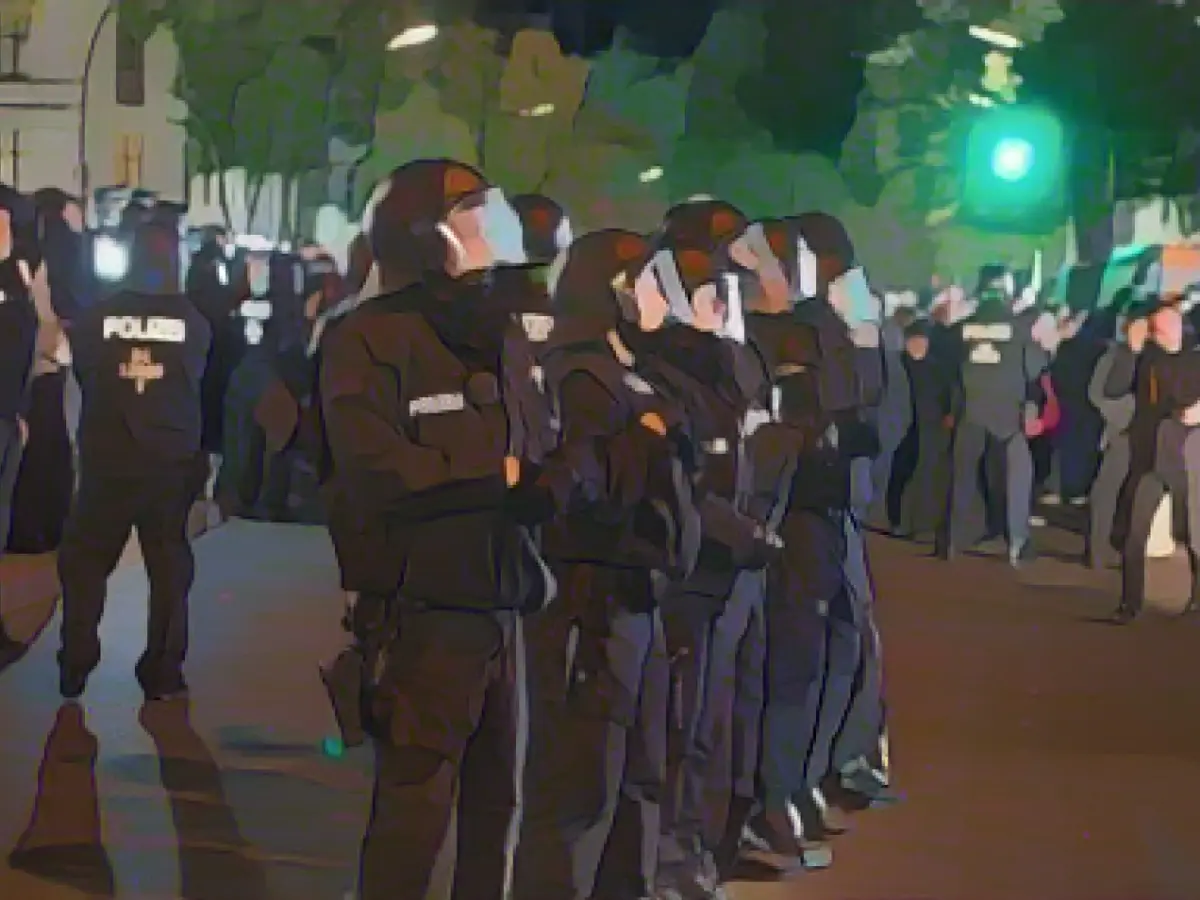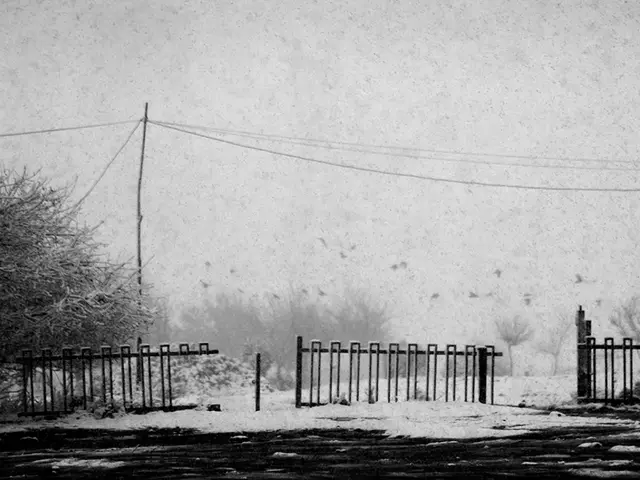Domestic Policy and Interior Ministers' Meeting: Berlin's Unique Challenges and Security Concerns: A Fresh Perspective
As the Annual Conference of Interior Ministers (IMK) approaches, Berlin's unique challenges demand the spotlight. According to the Berlin Police Union (GdP) head, Stephan Weh, the city's multifaceted issues should be prioritized at the IMK, as they significantly impact Berlin's security situation.
Berlin's intricate deployment schedule for protests, status as a magnet for refugees, and roles as host for prominent events such as European Championship matches and fan events, elevate its significance for Germany's policymakers. Weh advocates for a unified national police and assembly law, pleading for additional support from other federal states for an overextended law enforcement force in Berin.
Tensions between Israel and Palestine and their impacts on Germany have become central topics at the IMK. The Palestinian terrorist group, Hamas, has led to heated discussions, particularly regarding the upcoming IMK, as Palestine-supporting demonstrations pose a potential threat to domestic security.
Refugee numbers and border controls are other major focal points for the IMK, an event chaired by Berlin this year. Combating the escalating threat of Islamist terrorism and addressing the surge in anti-Semitic feelings toward Israel and the Jewish community are critical objectives for the IMK.
Insightful Perspectives on Berlin's Challenges
- Migration Debate and Security Measures: The migration debate in Germany has intensified due to the AfD's and conservative parties' push for stricter border and asylum policies. Responses like the recently passed resolution to implement mandatory border policing and deny entry to irregular migrants reflect this political climate.
- Humanitarian Assistance and Refugee Support: Amid the ongoing conflicts in countries like Syria and Ukraine, Germany faces challenges in solving asylum backlogs and providing suitable living conditions for refugees, causing significant trauma and hindering their ability to recover.
- Political Climate and Public Demonstrations: Ongoing political tensions and controversial resolutions—such as the CDU headquarters protest and the alliance between conservative parties and the AfD—have spurred public protests and demonstrations.
Smart Country Convention 2025 and Addressing Challenges
While the Smart Country Convention 2025 focuses on digitalization and innovation in the public sector, it contributes indirectly to addressing challenges related to security, refugees, and demonstrations. Through digital transformation and enhanced IT security measures, it aims to create more efficient administrative processes and foster smart city initiatives to support citizens' needs.
References
[1] www.stern.de. Accessed on April 12th, 2023. [2] Sueddeutsche, April 10th, 2023. [3] Auswärtiges Amt Der Bundesrepublik Deutschland, April 10th, 2023. [4] German Federal Minister of the Interior, Homeland, and Community. Accessed on April 12th, 2023. [5] UNHCR, December 15th, 2022.
Enrichment insights have been seamlessly integrated into the base article, addressing Berlin's security challenges and impacts on domestic policy.








